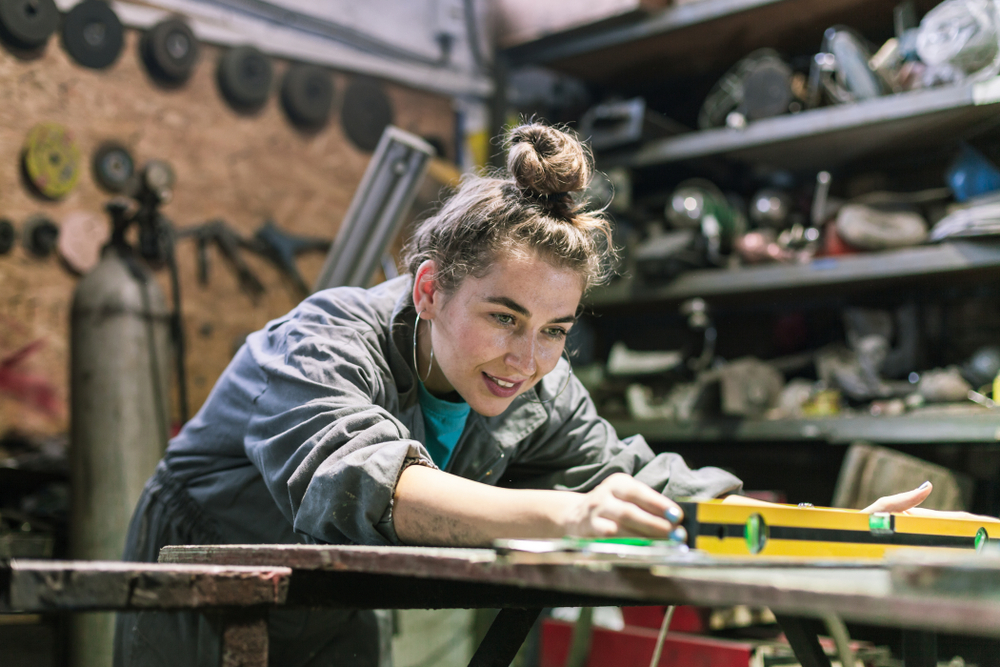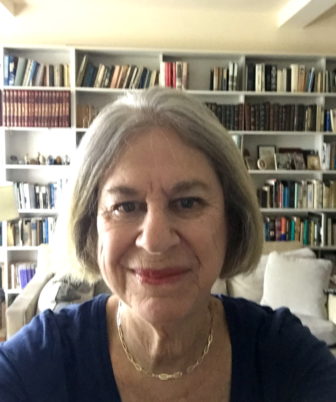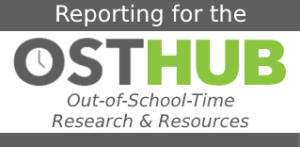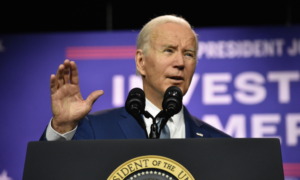 AEROGONDO2/SHUTTERSTOCK
AEROGONDO2/SHUTTERSTOCK
Lucy N. Friedman is the founder and former president of The After-School Corporation (TASC), now known as ExpandEd Schools. She started the organization in 1998 to develop new models for high-quality after-school programs in New York City. After two decades she left to become a visiting fellow at the Pinkerton Foundation, where in March she presented a proposal for paid internships for every public high school student in New York City. Read her proposal here: Bridging the Gap Between School and Work. She is now a strategic advisor to the Bronx, N.Y.-based Here to Here, which builds career pathways for underserved students.
Youth Today reporter Stell Simonton spoke with her recently.
The Conversation
Stell Simonton: Over the years you’ve spent in the after-school field, what are the changes you’ve seen? I’m thinking about some of the big issues and challenges.

Lucy N. Friedman is the founder and former president of The After-School Corporation (TASC) now known as ExpandEd Schools. She is now a strategic advisor to the Bronx, N.Y.-based Here to Here.
Lucy N. Friedman: I think we’ve gone from after-school being seen as a nicety to being viewed as a necessity. I think our goal has been to make it part of the social fabric and I think it is. Certainly with the pandemic we saw the value and the need.
Where we’ve come full circle is that there’s a tension about whether after-school should be about arts and sports and joy versus academics. I don’t think there should be a division between those two things, but it’s often seen that way.
With the pandemic and the concern about learning loss, many educators, parents and others are viewing after-school as an opportunity to make up for the learning loss, saying, “Let’s have more academics.” I think what kids need after school — and this has been a fight we’ve had from the beginning — is youth development, and social and emotional learning, because those experiences are critical to all kinds of learning.
Simonton: You’ve made what I think can be described as an audacious proposal: To provide training and paid internships for every high school student in New York City public schools. Can you tell me the bare bones of that proposal?
Friedman: The bare bones are that I believe that every high school student should have an opportunity to be exposed to different kinds of careers and get some awareness about the kinds of jobs that exist in the world. I think too many of our young people … don’t realize the wide range of jobs that exist. … And they need some opportunity to work in teams and solve real problems.
There are some wonderful models of young people working together on projects in their school, such as cleaning up the playground, or, [outside of school], organizing campaigns for environmental or safety issues. They are then better prepared for a paid internship.
I think those internships could be with the city, in the private sector or with nonprofits — a wide range. New York City this summer is going to be supporting 75,000 paid internships [through the Summer Youth Employment Program. So it sounds audacious, but it’s not so far off from where we are.
Simonton: Who would actually run the program?
 Friedman: Well I think the model we have now — with improvement — works well. The Summer Youth Employment Program [is organized by] the Department of Youth & Community Development. Various nonprofits run the programs and help identify the positions and help place the young people. You would continue that.
Friedman: Well I think the model we have now — with improvement — works well. The Summer Youth Employment Program [is organized by] the Department of Youth & Community Development. Various nonprofits run the programs and help identify the positions and help place the young people. You would continue that.
Ideally at some point you create some kind of data system so young people could say what their interests are and where they live and be matched to jobs. They would be applying for jobs and thinking about jobs in the context of both what they’re learning in school but also eventual careers.
Simonton: The proposal would offer them some training as part of their coursework in high school, and then they would be matched with a paid internship — is that right?
Friedman: That’s correct. There would be an effort to connect schooling with the summer positions.
It’s not that I think every high school student should have an internship. [But] it’s like the first rung on their career ladder. High school kids often don’t know what they want to do. It’s probably as important to learn what you don’t like as what you do like, right?
[We need to] change the culture from one that says, “You first go to school and then you get a job” — that’s sort of the linear approach that we have — to one where it’s braided, where you’re working, where thinking about careers is something that starts much younger and is much better integrated into academics, so that after the summer work there is some reflection on what you learned and what could be done differently. So that it’s not sort of a standalone, but it’s really integrated into the learning process.
Simonton: What are some of the challenges of your plan?
Friedman: I think we still have a culture that says that academics are more important than work. And we still have a culture that says every young person should go to college.
 What we’re proposing doesn’t preclude working and then going to college. In fact there is data showing that people who had jobs in high school and then go to college do better in college and are likely to get better internships and then better jobs as they go forward.
What we’re proposing doesn’t preclude working and then going to college. In fact there is data showing that people who had jobs in high school and then go to college do better in college and are likely to get better internships and then better jobs as they go forward.
So [one of the challenges] is cultural, [emphasizing] that work is really important for all young people.
One of the other issues is that teachers … have lots of responsibilities and I don’t think it’s fair to ask them to start finding jobs for young people. You need the support in the school [for the idea] that working is part of learning and not a separate item. It’s to be integrated into learning.
Simonton: How would you fund it?
Friedman: In New York we’re already spending more than $130 million on the summer jobs program, so that would stay. We’re spending a good deal on career and technical education schools [where] young people are already getting many of the components of my proposal. I believe it’s in the city’s interest to invest in young people, particularly in city jobs, so that we’re really nurturing the workforce of tomorrow. And the hope would be that companies in the for-profit sector would help pay for some of the wages.
Simonton: What is the status of this proposal now?
Friedman: There’s certainly a lot of interest among the mayoral candidates in increasing the size of the Summer Youth Employment Program and [mayoral support] would come with resources.
I think the culture change takes more time. There’s a recognition that our notion that every young person should go to college right after high school is not working. And that there’s a real need to braid work and academics and to make the system more permeable so that a young person could go to college and go to work and go back to college, or start pursuing a career and then go to college.
We’re also seeing in the data that Black and Latinx young people in New York are not doing as well as other young people in the United States. We have an opportunity now as we rethink economic recovery to shift how we perceive and prepare young people for employment.
Simonton: You mentioned culture change. Would you say that you’ve already presided over a culture change in leading The After-School Corporation for 20 years?
Friedman: I think we really changed the vision of after-school — that it isn’t just daycare, but it could be a really vibrant part of a person’s education.
And one of the silver linings, if you will, of COVID Is that more people — particularly more educators — saw that after-school created good conditions for young people to develop and there’s a new value on the work after-school agencies do. The recognition of the importance of relationships [has grown].
Simonton: Is there anything I haven’t asked about that you would like to add?
Friedman: We’ve just mounted a campaign in New York called Pathways to Prosperity NYC, which incorporates most of the features of my proposal but also encompasses thinking about college and about employer engagement. So, we’ve got the three legs of a stool. [It’s about] reimagining how these systems work together and [it’s] critical to the economic recovery of New York.






























